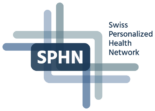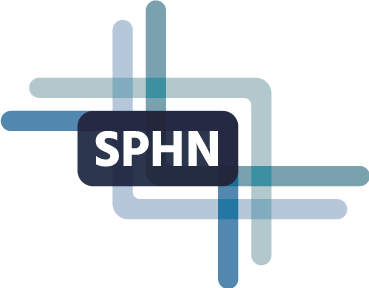E-General Consent: Development and Implementation of a Nationwide Harmonized Interactive Electronic General Consent
Project consortium: Prof. Christiane Pauli-Magnus (University of Basel/University Hospital Basel), Dr. Ramon Saccilotto (University of Basel/University Hospital Basel), Prof. Marc Pfister (University Children Hospital Basel (UKBB)), Prof. Alexander Leichtle (Inselspital Bern), Dr. Caroline Samer (University Hospital Geneva), Dr. Cindy Roth (University Hospital Lausanne (CHUV), Dr. Francisca Jörger (University Hospital Zurich), Annette Magnin (SCTO), Prof. Klara Posfay-Barbe (SCTO/SwissPedNet), Dr. Christine Currat (Swiss Biobanking Platform).
Main achievements
According to the Swiss Law on Research in Humans, the reuse of routinely collected genetic and non-genetic data and samples from patients for research purposes requires the consent of patients. Today, paper-based “general consent” processes with a handwritten signature have been established at all five Swiss University Hospitals. Unfortunately, these processes are intrinsically linked to the hospital admission process, labour intensive and not yielding the targeted return rates.
A first prototype of an electronic general consent pathway was developed based on the Swiss-wide harmonized general consent template version. The prototype was evaluated at all five Swiss university hospitals and usability testing showed a broad acceptance by patients.
However, the project has identified two main obstacles: i) patient identification and ii) legally acceptable consent (signature). Providing an electronic written consent and patient identification as part of a digital pathway are currently not feasible due to legal constrains. This topic was taken up by FOPH (Federal Office of Public Health) and should be addressed in the upcoming Human Research Ordinance revision. Therefore, it was agreed to pause the project.
Once the legal requirements are clarified the prototype will be adapted accordingly to finalize a validated software solution for collecting electronic general consent.
Reusable infrastructure and datasets
Mobile web application
Based on the nationwide harmonised template, a mobile centric progressive web application was developed. Usability of the application and according user journeys were evaluated at several hospitals. Two options of giving consent were explored using i) patients` smartphones without any involvement of hospital personnel and ii) a hospital device (tablet) with explicit confirmation of patient identity by hospital personnel. Participant signatures were captured as a picture of a handwritten signature on paper taken with the camera of the smartphone or tablet. Usability issues were documented by respective recruiters in each hospital with feedback of participants collected by a survey directly after the usability testing
In general, the usability testing of our prototype application showed a broad acceptance of participants regarding the use of mobile electronic devices to give general consent. Therefore, we believe that easy-to-use digital general consent processes provide cost-effective means to reach a large majority of patients, an important prerequisite to any further research with routinely collected health-related patient data and leftover samples. However, the requirement for hand-written signatures for general consent currently presents a major implementation obstacle. Especially since the wide spread use of qualified electronic signatures as legal equivalent to handwritten wet-ink signatures is currently not feasible.
Available ressources
A ready-to-use component cannot be provided, since the project is not completed due to the above mentioned reasons.
Follow-up projects
Depending on the availability of the revised Human Research Ordinance, it is planned to resume the project once the questions regarding electronic patient identification and legally acceptable electronic consent are solved.
Watch the SPHN webinar
Personalized health research depends on the availability of health-related data and leftover samples from routine practice. This requires a specific consent by respective patients, the so-called «general consent». Accordingly, all Swiss university hospitals have established processes to collect general consent information from their patients.
Unfortunately, these mostly paper-based processes fail to reach the required number of patients. We therefore propose to develop a solution to electronically collect general consent information that can be used in addition to the paper-based processes. Thus, hopefully increasing the number of patients with general consent and consecutively the amount of data and samples available for research.
Disclaimer: The contents on this website are provided as a general source of information for the interested parties. The SPHN Management Office does not take responsibility for the accuracy, validity or completeness of the material provided by the project responsible.

